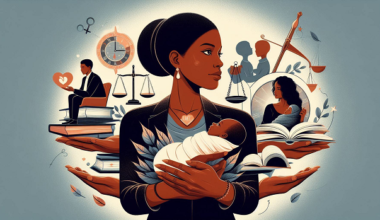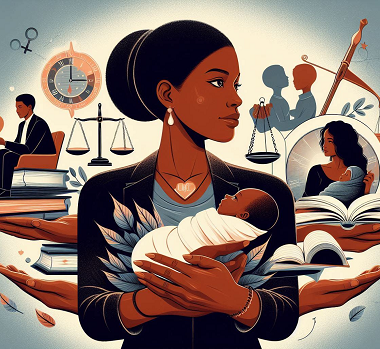In the heart of California’s bustling legal landscape, where justice intersects with economic disparity, low-income families often find themselves in need of legal assistance. Family law matters—such as divorce, child custody, and domestic violence—can be overwhelming, especially when financial resources are scarce. Fortunately, there are dedicated low-income family law attorneys in California who champion the rights of vulnerable families. In this article, we’ll explore their crucial role, shed light on available resources, and emphasize the importance of compassionate legal representation.
The Unsung Heroes: Low-Income Family Law Attorneys
1. Bridging the Justice Gap
- Legal Aid Organizations: These unsung heroes work tirelessly to bridge the justice gap. Funded by the State Bar of California, legal aid organizations focus on providing free or low-cost legal services to Californians with limited means. From custody battles to disability rights, these attorneys stand by families in their most challenging moments.
- Family Law Facilitators: Each county in California houses a Family Law Facilitator’s office. These dedicated professionals offer free legal assistance to individuals representing themselves in family law matters. Whether it’s filling out forms or understanding court procedures, they guide families through the legal maze.
2. Empowering Families Through Education
- Self-Help Centers: Many courthouses in California host Self-Help Centers. Here, families can access free legal information and guidance. Whether it’s understanding child support calculations or navigating divorce paperwork, these centers empower families to advocate for themselves.
- Pro Bono Attorneys: Some attorneys generously offer pro bono (free) or low-cost services to low-income individuals. These legal champions recognize that justice should not be a privilege reserved for the wealthy.
3. Documenting the Journey
- Unbundled Legal Services: Low-income families can benefit from unbundled legal services. Attorneys assist with specific tasks—such as reviewing documents or providing legal advice—without taking on the entire case. This pragmatic approach ensures affordability while maintaining quality representation.
- Guardianship Lawyers: Families navigating guardianship issues can seek assistance from specialized attorneys. These legal professionals guide families through the complexities of guardianship proceedings, ensuring the best interests of children.
The Compassionate Approach
Legal representation isn’t just about courtrooms and paperwork; it’s about human lives:
- Listening with Empathy: Low-income family law attorneys lend a compassionate ear. They understand that legal battles impact not only legal rights but also emotional well-being.
- Holistic Advocacy: Beyond legal matters, these attorneys connect families with community resources—whether it’s counseling services, housing assistance, or food programs.
- Fighting for Stability: When families face eviction, domestic violence, or child custody disputes, these attorneys fight for stability. They recognize that a stable home environment is essential for children’s growth.
Conclusion: Advocates for All
Low-income family law attorneys in California are more than legal professionals; they are advocates for justice, compassion, and stability. As they navigate legal complexities, they hold the torch for families seeking a brighter future.
The Unsung Champions: Navigating Family Law in California as a Low-Income Family
California’s legal landscape throbs with an energy that reflects the state’s vibrant diversity. Yet, amidst the towering skyscrapers and bustling courtrooms, a harsh reality exists: economic disparity often leaves low-income families struggling to access the legal representation they deserve, especially when facing complex family law matters. Divorce, child custody battles, and domestic violence can be overwhelming ordeals for anyone, but for low-income families, the emotional and financial burdens can feel insurmountable.
Fortunately, a beacon of hope shines brightly in California – a network of dedicated low-income family law attorneys and invaluable resources. These unsung heroes understand the unique challenges faced by low-income families and champion their rights with unwavering dedication. Let’s delve deeper into this crucial support system, exploring the resources available, the empowering role of compassionate legal representation, and the human stories that underscore the fight for justice.
Bridging the Justice Gap: A Network of Support
- The Stalwart Defenders: Legal Aid Organizations and Family Law Facilitators: Across California, legal aid organizations stand as the first line of defense, tirelessly working to bridge the justice gap. Funded by the State Bar, these organizations house a team of experienced attorneys who provide free or low-cost legal services to low-income families. From navigating the intricacies of child custody arrangements to securing disability rights, these attorneys become trusted allies during some of life’s most challenging moments. Furthermore, each California county boasts a Family Law Facilitator’s office. These dedicated professionals offer free legal assistance to individuals representing themselves in family law matters. Whether it’s deciphering complex legal jargon, understanding court procedures, or simply filling out essential paperwork, family law facilitators empower families to navigate the legal maze with greater confidence.
- Empowerment Through Knowledge: Self-Help Centers and Pro Bono Services: Many courthouses across California host havens of knowledge – Self-Help Centers. Here, families can access a wealth of free legal information and guidance on a range of family law topics. From understanding child support calculations to familiarizing themselves with the divorce process, these centers equip families with the tools they need to advocate for themselves. Additionally, a beacon of hope exists in the form of pro bono attorneys. These legal champions, driven by a deep sense of social responsibility, volunteer their time and expertise by offering free or significantly reduced-cost services to low-income individuals. Their dedication ensures that access to justice isn’t solely a privilege reserved for those with substantial financial resources.
- Tailored Solutions for Specific Needs: Unbundled Legal Services and Guardianship Lawyers: The landscape of legal aid recognizes the diverse needs of low-income families. Unbundled legal services cater to families who may not require full representation throughout their entire case. Attorneys can be engaged for specific tasks, such as reviewing critical documents, providing legal advice on a particular aspect of the case, or drafting legal motions. This pragmatic approach allows families to manage their financial constraints while still benefiting from quality legal expertise when they need it most. For families facing guardianship issues, specialized attorneys offer invaluable guidance. These legal professionals navigate the complexities of guardianship proceedings, ensuring the best interests of children are protected throughout the process.
Beyond Legal Expertise: The Power of Compassionate Representation
The fight for justice extends far beyond sterile courtrooms and meticulous paperwork. Low-income family law attorneys understand that legal battles have a profound human impact, often impacting not only legal rights but also emotional well-being. Here’s where the power of compassionate representation shines most brightly:
- Listening with Empathy: These attorneys go beyond simply understanding the law; they actively listen with empathy. They recognize the emotional toll that legal battles take on families and strive to create a safe space where clients feel heard and supported.
- Holistic Advocacy: The scope of their advocacy extends beyond the courtroom walls. They connect families with vital community resources, such as counseling services, housing assistance programs, or even food banks, ensuring their clients have a comprehensive support system in place.
- Champions for Stability: When families face the threat of eviction, the horrors of domestic violence, or the emotional turmoil of child custody disputes, these attorneys fight tirelessly for stability. They understand that a stable home environment is the bedrock upon which children can thrive.
Conclusion: A Beacon of Hope for a Brighter Future
Low-income family law attorneys in California are more than just legal professionals; they are the embodiment of hope, compassion, and unwavering dedication to justice. As they navigate the legal complexities on behalf of their clients, they illuminate a path towards a brighter future for families in need.






